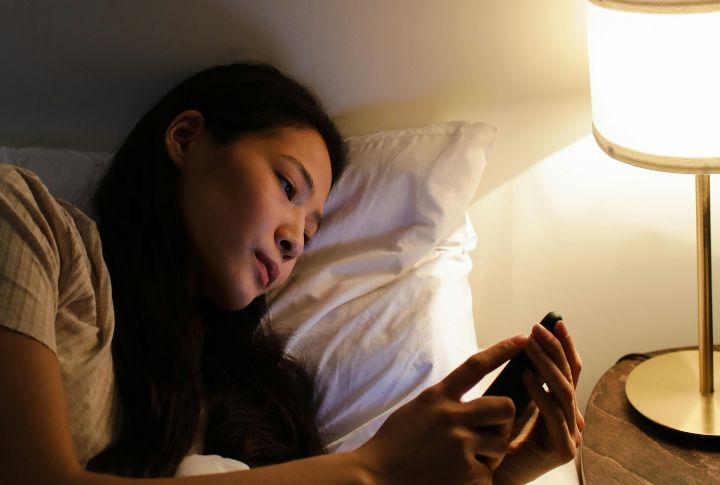
Your phone buzzes, and your mood shifts instantly. More than coincidence, it’s psychology in action. Social media platforms have mastered the art of emotional manipulation, especially targeting women’s mental health through carefully designed features. The effects run deeper than you realize, reshaping thoughts, actions, and behaviors in ways that feel natural but aren’t. Here are a few instances.
Comparison Trap

Browse for five minutes and watch your self-esteem plummet. Women naturally measure their messy reality against others’ polished highlight reels, creating impossible standards that feel deceptively achievable. Even accomplished women scroll through filtered perfection and feel inadequate. The “compare and despair” cycle hits fast.
Dopamine Hijacking

That little rush from notifications? It’s the same chemical hit as gambling or drugs. Each like triggers genuine pleasure, but tolerance builds quickly. Soon, women demand more engagement to feel satisfied, creating dependency on digital approval. The brain starts craving social media stimulation during everyday activities.
Body Dysmorphia

Women tend to lose touch with their natural appearance, needing digital enhancement to feel attractive. Filtered photos give rise to a warped reality where impossible beauty feels normal. Plus, constant exposure to edited images distorts perception so severely that even mirrors start to become disappointing.
FOMO Syndrome

Yes, missing out does feel personal when everyone else seems to be living their best life online. Females scroll through adventures they’re not part of, feeling excluded from experiences that look effortless and fun. This constant awareness of others’ activities breeds deep dissatisfaction with perfectly adequate personal lives.
Validation Addiction

Likes turn into emotional currency. You check engagement obsessively, losing focus on real accomplishments while waiting for digital approval. That’s when your self-worth begins to depend entirely on some random strangers’ reactions to posts. And if responses don’t come immediately, anxiety kicks in full power.
Information Overload

Too much content, but too little time to process it meaningfully. Females generally struggle with overwhelming daily information streams that give rise to mental fatigue and decision paralysis. Cognitive resources get depleted from endless scrolling, leaving little mental energy for meaningful tasks or deep thinking.
Relationship Sabotage

Unfortunately, digital conversations often replace real intimacy, while curated couple content sets unrealistic expectations for relationships. Partners get compared to reels, sparking conflicts over imagined inadequacies. Online interactions mainly lack emotional depth, gradually eroding the face-to-face connection skills needed for genuine relationships.
Risky Performance

Engaging in risky behaviors on social media, such as posting pranks, provocative, or dangerous content to attract attention, likes, or shares, is a recognized and concerning phenomenon. This act can encourage individuals, particularly young people and young women, to take actions they might otherwise avoid in person.
Identity Crisis

Who are you when nobody’s watching? Social media makes this question harder to answer as girls lose touch with interests that don’t generate online engagement. Unfortunately, the authentic self becomes fragmented, split between who you truly are and who you present as online.
Social Isolation

The irony is cruel: more connected than ever, yet lonelier than before. Digital relationships replace genuine human interaction and community support, leaving people feeling isolated despite constant online “connection.” Real friendships also start to deteriorate as screen time takes priority over face-to-face conversation.
Decision Paralysis

Every choice becomes overwhelming when endless options and conflicting opinions flood your feed daily. Women seek validation for decisions both big and small through social media polling, gradually losing confidence in their own judgment. Simple life choices get complicated by others’ experiences and advice.
Financial Pressure

Don’t wait until your wallet becomes a casualty of algorithmic manipulation. After all, social media advertising creates artificial needs for products you never wanted before. Women feel mounting pressure to purchase items just to maintain their online image, while influencer marketing manipulates spending decisions.
News Saturation

The world’s problems flood your feed in an endless stream of tragedy and crisis, creating chronic stress and overwhelming hopelessness. Women become emotionally exhausted by global issues they cannot control or solve. Furthermore, social media algorithms amplify tragic events to maximize engagement.
Exacerbating Eating Disorders

Social media exacerbates eating disorders by exposing users, especially females and young people, to a constant stream of images and messages promoting unrealistic body ideals, extreme thinness, and unhealthy dieting behaviors. Platforms like TikTok are filled with curated photos and influencer content that glorify unattainable beauty standards.
Empathy Erosion

Human connection loses its depth when filtered through screens and shortened attention spans, which are designed for quick consumption. Women become gradually desensitized to others’ genuine struggles and pain. Compassion fatigue sets in from constant exposure to everyone’s problems, reducing the natural empathy that builds meaningful relationships.
Sleep Disruption

Excessive screen time. especially before bed, disrupts sleep patterns, and is directly linked to poorer mental health for women. The use of phones, computers, and other devices before sleep exposes users to blue light, which suppresses melatonin production, delays sleep onset, and leads to restless sleep.
Emotional Manipulation In Friendships

Emotional manipulation in women’s friendships is also encouraged by amplifying jealousy, comparison, and indirect aggression. Friends monitor each other’s interactions, selectively include or exclude others in posts, and broadcast social dynamics, which can be used intentionally to provoke insecurity or jealousy.
Unrealistic Beauty Standards

The more ladies use social media to view or post appearance-related content, the more likely they are to adopt unrealistic beauty standards and feel dissatisfied with their own bodies. Over half of the girls report being unable to live up to these standards, leading to lower self-worth.
Self-Silencing

This phenomenon of self-silencing, where women suppress their true thoughts and feelings to steer clear of conflict or negative consequences, is deeply rooted in both offline gender norms and the unique dynamics of digital platforms. Many folks experience or witness violence, threats, and harassment on social media.
Reinforcing Harmful Stereotypes

Outdated gender norms are mainly amplified by these algorithms, which continuously expose women to content that perpetuates self-limiting ideas about their value and potential. Digital echo chambers reinforce assumptions about conduct, success, and femininity that women have been fighting to break in real life for decades.
